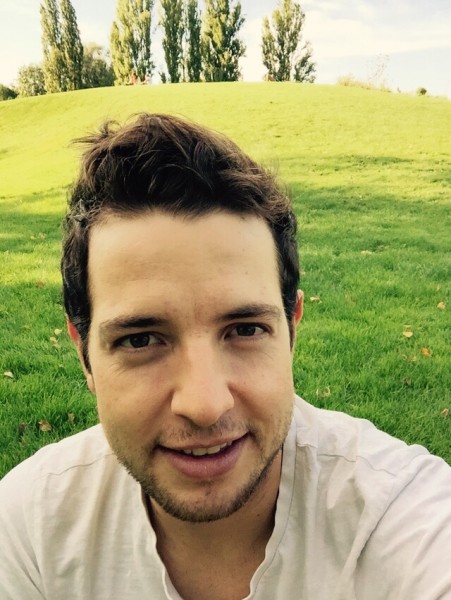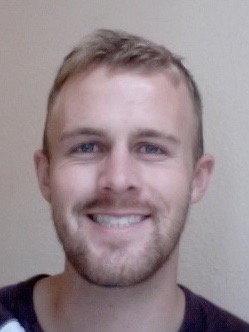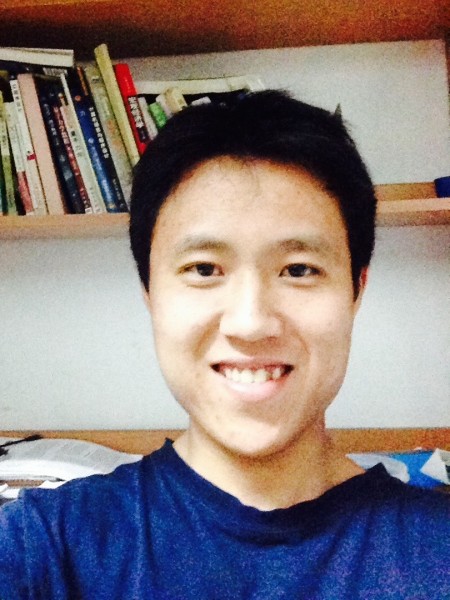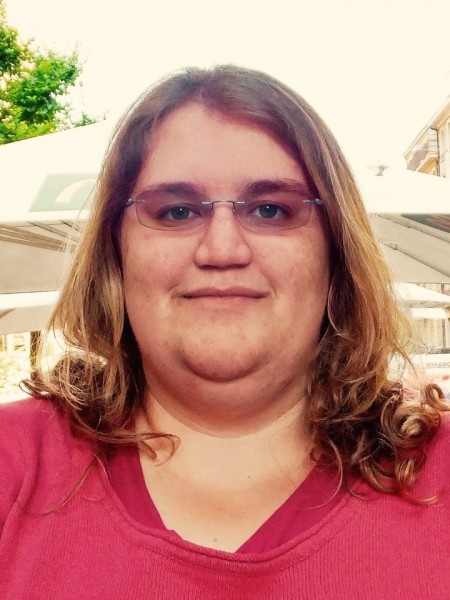New members of PlanetS
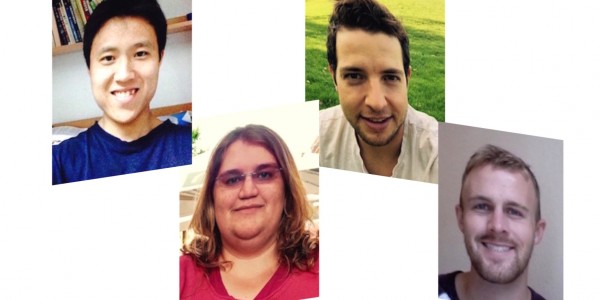
„I am passionate about exoplanets“, says Helen Giles. „They’re thrilling.“ A research topic that also attracts Kevin Zihlmann, Miles Timpe and Hongping Deng. The four PhD students are new members of the NCCR PlanetS in Geneva, Bern and Zürich.
„I want to find out more about the formation of our planet Earth“, says Kevin Zihlmann. „But I’m also curious what other planets are out there.“ Working in Bern with a formation model, he wants to find constraints about the internal structure of planets. “This can help to select interesting targets for CHEOPS”, he explains.
“I joined NCCR PlanetS because it provides a collaborative and multidisciplinary approach to exoplanet science that isn’t found in other programms”, says Miles Timpe. “It was also an attractive opportunity to work with cutting-edge computational resources.” At the University of Zurich he will be focusing on theoretical and numerical modelling of planet formation.
Also at the University of Zurich, Hongping Deng is working on vortex evolution and dust concentration in protoplanetary disks. “I joined the NCCR PlanetS, because I am very curious about how planets form and the possibility of forming a habitable earth like planet in a general protoplanetary system”, he says.
Helen Giles’ passion for exoplanets started a while ago. “I did a small research project on how to find them before I went to university, where I thought I might get excited by other areas of astronomy”, she remembers. “But it turns out that it was always exoplanet. Why? I have no idea.” Helen Giles was at the University of St Andrews studying for her undergraduate degree. In Geneva she will be working on the synergy of different exoplanet hunting missions (K2, TESS, CHEOPS). “Using space-based photometry, I aim to search for exoplanets in ongoing missions’ data and then assess whether they are good candidates for follow-up with CHEOPS”, she explains. “But right now, I’m just catching up on the K2 literature and what has been done so far for data reduction and extraction.”
Missing Chinese food and British tea
Hongping Deng studied physics at Tsinghua University in Beijing and earned a bachelor of science there. “Now I am a fast track PhD in UZH”, he says. “I was lucky to find a nice apartment and a roommate.”
Miles Timpe received his bachelor from the University of Washington in Seattle, followed by a year with the NASA Astrobiology Institute’s Virtual Planetary Laboratory. “I completed my master last month as part of the “Erasmus Mundus Joint Master Program in Astrophysics” (AstroMundus), during which I was able to study at universities in Austria, Italy, Serbia, and Germany”, he explains.
Kevin Zihlmann studied physics and astronomy in the bachelor program in Bern. “Then in February, I finished my master in experimental physics where I was working with the cyclotron at the Bernese University Hospital”, he says. He likes living in Bern, but often spends his weekends with his family and friends in Obwalden in central Switzerland. And just coming back from half a year of traveling in Thailand, Indonesia, Taiwan and the United States, he already misses the Indonesian ocean waves since surfing is his hobby.
Although being far away from his home country, Hongping Deng says: “I miss no one, but Chinese food.” Helen Giles must understand because she admits: “I miss a good cup of tea. And St Andrews.” For Miles Timpe it is “a little hole-in-the-wall restaurant back in Seattle that I often find myself missing. If I could just get them to start delivering in Zürich… (bva)
Categories: Internal Newsletter
